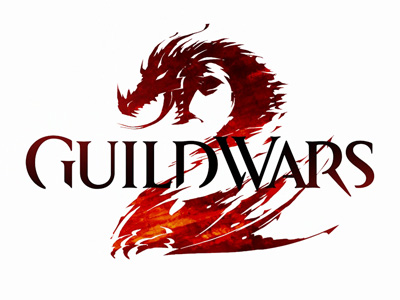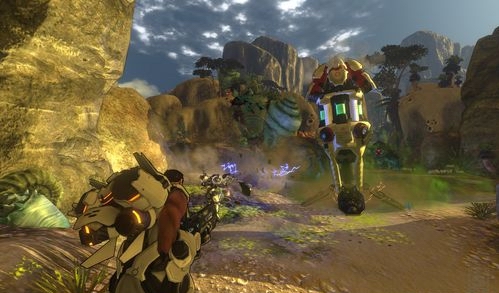MMO游戏定义混乱 玩家想法才是真正的决定因素
2009年,MMO游戏开发人员感受到该行业发生的巨大变革。MMO游戏正在改变,技术的进步使其不再仅限于回合制,而开始向各个领域延伸。可以看到射击类和RTS的MMO游戏逐渐显现,MMO正与所有适用的游戏题材融合。当时开发人员编写了许多题为“重新定义MMO游戏”的文章,这两年中事情有所进展吗?从表面上看,游戏邦认为并没有。目前仍然无法准确说明什么才是MMO游戏,不同的人有着不同的见解。
Larry Everett在PAX East展会上采访了6个不同的设计者,其中3人参与设计今年最受期待的游戏,两人来自资深MMO游戏工作室,剩余一人来自拒绝将其设计的游戏定义为MMO的工作室。随后,他了解到了《激战2》、《星球大战:旧共和国》、《英雄之城》、《龙与地下城Online》、《指环王Online》和《火瀑》的开发者对MMO游戏新定义的看法。
名称后的内涵
Turbine传媒总监Adam Mersky给MMO下了个简单的定义,他说道:“大型多人游戏是指那些玩家可以与大量其他用户同时玩的游戏,无论玩家是否与他们存在直接的联系。”来自ArenaNet的Colin Johanson在世界各地阐述他对MMO的理解:“MMO游戏为玩家创造了平台,无论身在何处都可以一起享用,开发者为玩家设计出可以共同探索的世界。”但MMO游戏的定义确实正在改变,开发者是如何重新定义这种题材的游戏呢?Red 5 Studios首席执行官Mark Kern是前《魔兽世界》开发团队领导人,他说道:“MMO包含的内容已远非其名称所能概括。改变MMO游戏题材并不等同于开发者设计出新型MMO游戏,我认为应该改变游戏中的所有内容,包括使用的术语等。”
BioWare首席创意总监James Ohlen近年来制作了某些富有开拓性的游戏,如《质量效应》、《质量效应2》和《龙腾世纪》,目前他正专注于设计今年最受期待的《星球大战:旧共和国》。如果有人能够洞悉MMO名称之后的内涵,那么无疑就是他了。他说道:“如果不存在技术障碍,玩家可以在游戏中做任何想做的事情,那么玩家的行为可能类似于《星际迷航:下一代》中的角色。你可以融入希望到达的幻想世界或场景中,过着完全虚拟化的生活,成为游戏中的英雄并掌握所有主动权。”
他认为开发者首先要做的是确保玩家能在游戏中感受到与自己相关的故事情节,如果失去这些,那么玩家就不会对整个游戏故事着迷。第二步便是制作多人对话系统,让玩家与故事情节间存在关联。最后,也是Ohlen认为最重要的步骤,就是MMO游戏中的社交元素。他说道:“MMO让游戏中的成千上万玩家可以同时参加社交活动。如果开发者想要获得成功,当然包括我们,就必须利用社交将玩家联系起来,让他们日复一日地回到游戏中。”
社交群体
游戏邦获悉,另有开发者认识到社交是MMO游戏与其他游戏的区别。《英雄之城》首席制作者Nate Birkholz暗示道:“从根本上来说,MMO是将社交群体植入其中的游戏。我认为MMO游戏中融入了社交群体并利用其提升游戏的可玩性,这不仅有利于玩家的游戏体验,而且还增加了玩家带入游戏中的内容。”来自Turbine的Adam Mersky赞同这个观点,他指出Turbine在制作游戏时同样重视社群。他说道:“玩家可以使用我们的社群网站记录技能和在线状态,进而将其与朋友分享。通常玩家在晚上玩游戏,此举是为了使他们在白天也能参与到游戏中。无论玩家在学习、工作或世界各地,他们都希望能够保持游戏带来的亲切感。我认为这些方式很奏效。”
ArenaNet并非通过网站或互动来建立社群,他们似乎更偏好采取适当方法让玩家共同玩游戏和做其他的事。《激战2》设计师Mike Zadorojny评述道:“确实有某些玩家不愿意与他人交流,他们只喜欢做自己的事。有些玩家可能会认为‘我可以和那个人一起玩,但我没必要跟他说话’,每种玩法后都潜藏着玩家个人的想法。对于此类玩家而言,诸如职业间组队作战或许只是日常游戏行为而已,并非为了社交。”他的此番言论得到领导Colin Johanson的赞同,Johanson说道:“我不认为开发者应该强迫玩家组队,鼓励玩家社交化是更好的选择。任何强迫玩家组队的人都没有意识到,许多玩家并不想那样玩游戏,这是他们犯下的大错误。开发者需要做的是用奖赏措施鼓励玩家自愿与他人组队。”
决定MMO游戏定义的真正因素
故事情节、社群和社交互动这些都很不错,但为何MMO游戏的说法呈下滑趋势呢?为何某些游戏不愿意被称作MMO呢?Mark Kern在提及自己的游戏《火瀑》时回答道:“如果我们将游戏称为MMO,人们多半会想到掷骰子、装备、技能和无穷无尽的内容。”游戏邦认为这么说确实有道理,Colin Johanson同意道:“我觉得原因之一在于许多玩家认为称作MMO的游戏存在明显的瑕疵,我想很多人听过‘噢,玩这款游戏我得花上一辈子’这种话,或者他们也这么想。”Johanson坚持认为《激战2》不会陷入这种困境中,他表示:“玩家可以在合理的时间内打通游戏,这款史诗般的RPG游戏无需玩家花费大量精力。”
游戏邦认为,可以将上述观点总结如下:多人游戏允许玩家单独游玩或与他人协作,让玩家觉得是自己故事中的英雄,在可玩性背后有着足够的影响力,鼓励而并非强迫玩家在游戏上花时间。这些条件将来会实现吗?Adam Mersky回答了这个问题:“人们玩网游的首要原因是朋友在玩,我们不是要制作游戏来告诉大家玩什么,而是要开发内容符合玩家需要的游戏。”其实,真正能给MMO游戏下定义的正是玩家。玩家想要玩什么游戏,玩家会劝说朋友玩什么游戏,这才是最终决定MMO游戏定义的因素。(本文为游戏邦/gamerboom.com编译,转载请注明来源:游戏邦)
Redefining MMOs: More developers weigh in
In 2009, the staffers of Massively were more than aware of the changes happening in the MMO industry. The game was changing; technology was allowing the MMO to step out of its turn-based comfort zone and take on new challenges. We began to see the MMO-shooter, the MMO-RTS, and the MMO-does-that-even-fit-in-a-genre. The staff penned a series of articles called Redefining MMOs. Have things changed in two years? On the surface, I’d say no. We still can’t figure out exactly what an MMO is. If you ask six different people the same question, you’ll get six different answers (if not more). In fact, while I was at PAX East, I did just that.
I spoke to six different designers: three from the most anticipated games of this year, two from studios that have been doing this MMO thing for a long time, and one from a studio that refuses to label its game as an MMO. After the break, find out what developers of Guild Wars 2, Star Wars: The Old Republic, City of Heroes, Dungeons and Dragons Online, Lord of the Rings Online, and Firefall have to say about the new definition of MMOs.
Beyond the tag
“Massively multiplayer games are games where you can have massive amounts of people playing a game at one time, whether you choose to play with them directly or not,” said Adam Mersky, Turbine’s Director of Communications, in his quick take the definition of MMO. Colin Johanson of ArenaNet spun the definition around a world: “With the concept behind an MMO, you create the ability for these people to play together wherever they are, and you can build a world for them to explore and play around in together.” But the definition of MMO is changing, right? How do developers redefine the genre? If you were to ask Mark Kern, the CEO of Red 5 Studios and former Team Lead for World of Warcraft, he would tell you that “the potential of MMOs is so much broader than the tag would indicate. You can’t change the MMO genre simply by calling yourselves a different type of MMO. I think you’ve got to change everything about it, including the terminology that you’re using.”
James Ohlen, the Lead Creative Director at BioWare, has made some of the most groundbreaking games in recent years — Mass Effect, Mass Effect 2, Dragon Age — and he’s currently working on what is arguably the most anticipated game of this year, Star Wars: The Old Republic. If anyone can go beyond the MMO label, he can. His take was this: “If technology weren’t a barrier and you could build anything you wanted to, you’d do what they had in Star Trek: The Next Generation. Everyone would have a holodeck. You’d be able to go in and live a completely virtual life in whatever fantasy world or scenario you wanted to — be the hero and make all the choices.”
He believes that the first step for a developer is to make sure that the player feels he has his own personal story, “because without that, people just aren’t going to be attached to the overall story.” The second step is creating a multiplayer dialogue system that allows the players to be involved with the overarching storyline. And lastly — and most importantly in my mind — come the social aspects of the MMO. “What defines an MMO is when you have thousands of players in a game at the same time engaging in social activities together. If you want to be successful — and we want to be successful — you have to have that social glue that holds people together and keeps them coming back month after month,” Ohlen said.
Social Community
Another developer sees social aspects as one of the way in which MMOs separate themselves from other games. City of Heroes Lead Producer Nate Birkholz suggested that “ultimately, it is a game that has the community built into it. What I mean is taking a game that has the community built in and using it to enhance the gameplay — enhance not just what people are able to get out of the game but also what they bring into the game.” Turbine’s Adam Mersky echoed that sentiment, noting that community is a big part of what Turbine is doing for its games. “We are building up ways on our community site to keep track of all your kills and stats online, so you can share them with your friends. The gaming hours are usually in the evening, but we are building ways to engage players during the day. Whether they’re at school or work or wherever, they want to check up on their kinship for that night. I think those tools are more powerful.”
Rather than focus on building a community via a website or interactive storytelling, ArenaNet seemed to take a bit more of an organic approach to getting people to play and do things together. “There are some players who really don’t want to communicate with each other — they just like doing their own thing. By having those natural benefits, it’s like, ‘OK, I want to be near that person, but I don’t necessarily want to talk to him,’ because there’s a lot of unspoken language going on with how you’re playing the game, like the cross-profession combos. It just becomes a part of the routine and the natural flow,” commented Mike Zadorojny, Content Designer for Guild Wars 2. This was echoed by his boss, Colin Johanson: “I don’t think you need to ‘make’ them [group up] — encouraging the social player to group up is good. Anyone who says you need to force them to group is making a huge mistake and not recognizing that there are a lot of people who just don’t want to play that way. What you need to do is make it a rewarding experience to play with other people to the point that you actually want to do it.”
Undefining MMO
These things are great! Storytelling, community, social interaction… but what’s the downside? Why do certain games not want to be called an MMO? Mark Kern answered this question regarding his own game, Firefall: “If we had called it an MMO, I think people would have thought about dice rolling and equipment vs. skill — and massive amounts of grinding content.” That makes sense to us, and Colin Johanson agreed: “I think one reason is that there is a definite stigma that comes with the term MMO for a lot of gamers. I think a lot of people hear that, and they think, ‘Oh, that’s a game that I have to dedicate my life to playing.’” Johanson insisted GW2 will avoid that pitfall. “You get to the end of our game in a very reasonable amount of time, so it feels like an epic RPG, but it doesn’t feel like you have to dump your entire life into this game to be able to play it.”
Maybe we can derive a single answer from the combination of these insights: We want a multiplayer game that we can play solo or in natural groups, a game that makes us feel like the heroes of our own stories, a game that has an impact beyond gameplay itself, and a game that encourages rather than forces us to dedicate our time to it. Are we ever going to achieve that? I think Adam Mersky answered that question: “The number one reason people play online games is because their friends do. We don’t make games to tell players what to play. We make games that players want to play.” Ultimately, the definition of an MMO is you, the MMO player. What do you want? You want the games you play, the games you encourage your friends to play. That is what will finally define an MMO. (Source: Massively)










































 闽公网安备35020302001549号
闽公网安备35020302001549号